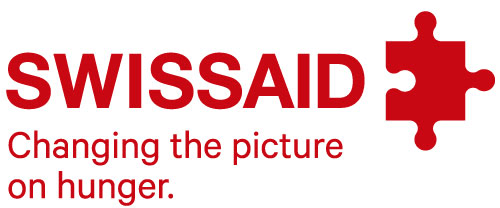In the south of Chad. In the department of Abtouyour. That is where Yaya Adoum lives. Together with 15 other women farmers, the widow has dedicated herself to peanut oil production. The work is arduous and difficult. The women crush the seeds with stones. Often for hours. Until the seeds have formed a paste. The women can finally extract oil from it.

Salomon Djekorgee Dainyoo/Fairpicture
Yaya Adoum, president of an association of about 15 peasants, has fought to obtain the means to improve the production conditions of the women in her village. They all have parents and children to support, but they do not always have the means to support them.
It is a similar picture in the neighbouring village. There, Mankaria Baya and her neighbours pound their millet into flour. By hand. Because there is no mill. The nearest one is in the capital Bitkine, more than 10 km away. “We would need a means of transport for that. But that costs money. It also takes a lot of energy and time. After that, we still have to cook for the family, which means we have to fetch water and wood. In the end, the children can only eat late at night,” explains Mankaria, a widow and mother of six.

Salomon Djekorgee Dainyoo/Fairpicture
Chadian women farmers used to process the raw materials into oil or flour by hand. This is exhausting and time-consuming work, which does not always allow them to provide for their families.
Unequal position
In Chad, especially in rural areas, women have many duties but few rights. Young girls often have to drop out of school and get married off. Or they have to help with the work in the fields. Many women can therefore neither read nor write. The illiteracy rate is much higher among women in Chad than among men. Moreover, they have no right to own land. And: women have limited access to credit.
These inequalities do not only affect women themselves. Mostly, the whole family suffers. After all, women feed the children, send them to school and pay for doctor’s visits. The situation of a mother who does not earn an income is therefore not only precarious for her, but also for her offspring. And thus for the future generation.

Salomon Djekorgee Dainyoo/Fairpicture
Become part of the solution
With a little help
That is why SWISSAID strengthens women in its projects. It brings them together in regional organisations or women’s associations. It provides them with knowledge about sustainable agriculture and helps out with animals and equipment.
The life of Mankaria has changed thanks to SWISSAID. Her village association applied to SWISSAID for a mechanical mill. Members from the surrounding villages can use it. All of them report a considerable saving in time. “Our workload has reduced considerably,” says Mankaria Baya with a smile.

Salomon Djekorgee Dainyoo/Fairpicture
Yaya Adoum and the group of women farmers of which she is president, received a mechanical mill to facilitate the processing of groundnuts into oil. This saves a considerable amount of time, increases income and improves food security for the entire region.
Un petit coup de pouce
This is also said by Yaya Adoum, the chairperson of the women farmers’ association, who has also received a mill. They no longer have to laboriously pound the groundnuts by hand, but extract the oil easily and quickly. The time saved and the increased production not only improve the women’s income, but also bring hope to an entire region.

Salomon Djekorgee Dainyoo/Fairpicture
We are all part of the solution!
Climate crisis, pandemic, hunger: we are convinced that the great challenges of this time can only be tackled together. We are all part of the solution: the smallholder farmer in Chad, the donor in Switzerland, the politician in Bern. SWISSAID puts the various parts together. So that the vision of a world without hunger becomes reality. Piece by piece.

